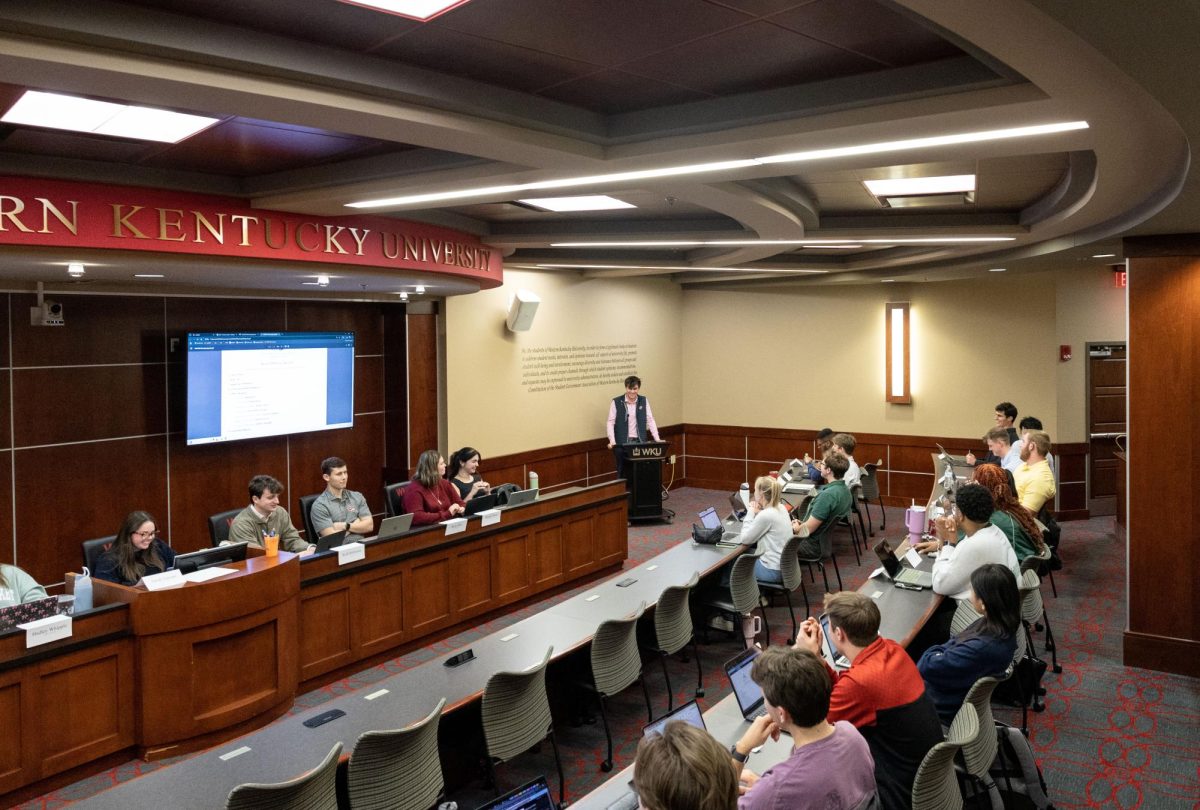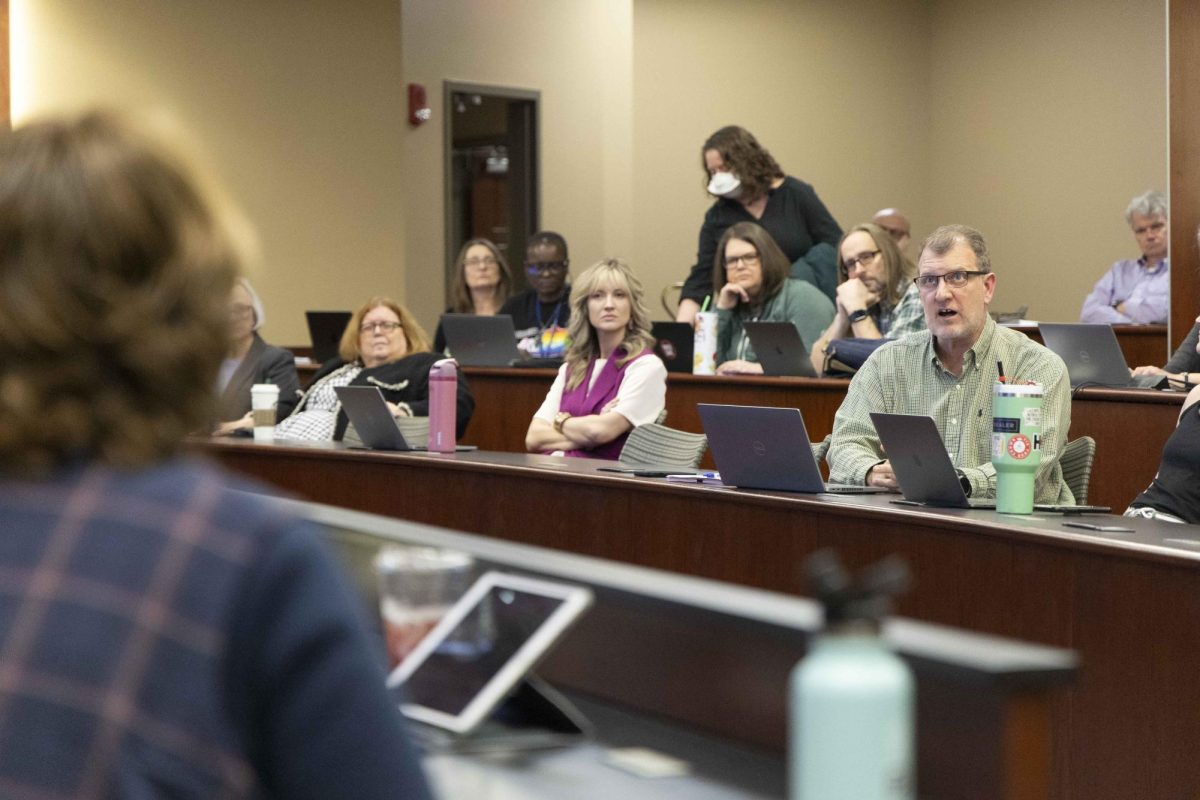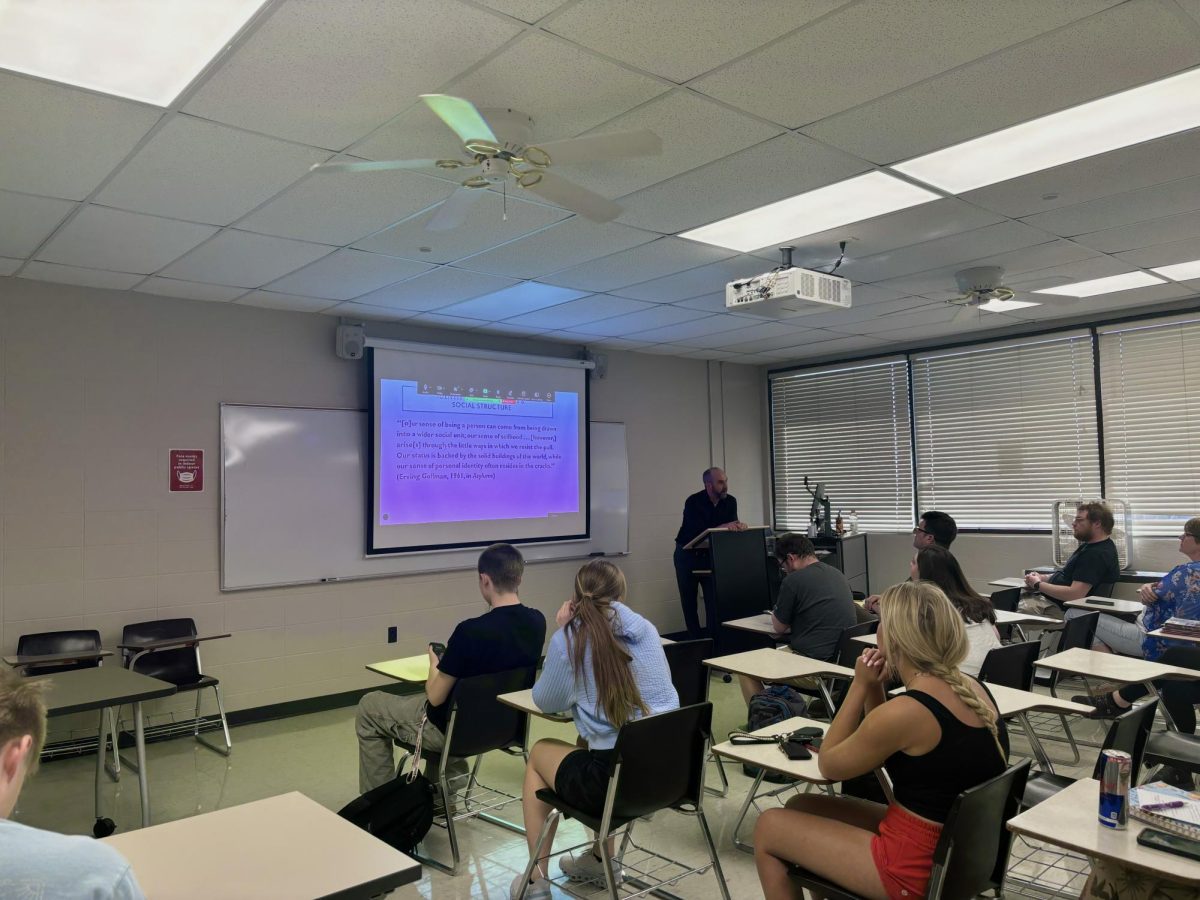WKU’s spending on institutional scholarships has more than tripled over the last decade, accounting for one of every six dollars WKU will spend in its unrestricted budget for 2024-25.
The significant rise in spending on institutional scholarships — those funded by the university budget rather than scholarship endowments or grants — aligns with a major expansion of the program when WKU added its Border-State and Hilltopper Guarantee scholarship programs in 2021.
Institutional scholarships are included in WKU’s unrestricted Education and General (E&G) budget, $297.4 million for the current year, which includes other areas like athletics, facilities, academic colleges and the majority of faculty and staff salaries. Institutional scholarships amount to $47.5 million of the 2024-25 budget.
Over the last decade, these scholarships have nearly quadrupled in the amount that they occupy in the unrestricted E&G budget, and they have exceeded their specified budget on five separate occasions.
In 2013-14, institutional scholarships were budgeted at $14 million, which was 4.62% of the unrestricted E&G budget of $303 million that year. Now, in the 2024-25 fiscal year, these scholarships have seen a 239% increase to $47.5 million, or 16% of the current unrestricted E&G budget of $297.4 million.
“You have to spend money on financial aid to get students here,” Susan Howarth, executive vice president for WKU Strategy, Operations and Finance, told the Herald in an interview on June 26.
In a 2024 study by Ellucian, over three-quarters of student respondents said the financial aid amount awarded to them influenced the university they chose. The study found that financial aid was the top driver in students’ enrollment decisions, overtaking parental influence, location, campus culture and even the degree programs offered.
In the current academic climate, WKU is in an “arms-race” with other universities, Eric Reed, a WKU faculty member who formerly served on various budget committees, said in an interview this week.
Reed said that institutional scholarships are a strategy to boost enrollment by competing for students.
“Both President (Gary) Ransdell and President (Timothy) Caboni have made an initiative — a priority — to use scholarship money to support enrollment,” Reed said. “It used to be the case that we would pay high performing students to come to WKU.”
Now, Reed said, the university seems to offer scholarships mainly as an enrollment strategy.
“We’ve always been told that the calculus of that is that (if) you get more students in the door, you will increase the amount of revenue you generate for tuition, even if you have students who aren’t paying full price because of a scholarship,” Reed said.
In 2013-14, WKU brought in $168 million in total actual tuition revenue — about $5 million less than was budgeted for that year. For 2024-25, the total tuition revenue is budgeted at $173.5 million, just 3.3% more than the tuition collected in 2013-14.
Howarth said in the interview that the university has developed financial aid strategies and is working to revise those strategies as “enrollments are growing again.”
The 2023-24 academic year marked the first increase in degree-seeking enrollment at WKU in over a decade at 1.5%, as well as a total enrollment increase of 5.8%, according to an email Caboni sent to faculty and staff on Oct. 11, 2023.
Enrollment dropped almost a quarter from 20,456 in 2013-14 to 16,465 in the fall of 2022-23, rebounding to 16,762 in 2023-24. Since 2013-14, WKU’s spending on institutional scholarships has risen by $33.4 million, or 239%.
In 2021-22, the university implemented the Hilltopper Guarantee and Border-State scholarship programs to discount the cost of going to college. The Hilltopper Guarantee covers 100% tuition for any first-time, first-year freshman from Kentucky who receives both Pell and Kentucky College Access Program grants, while the Border-State scholarship program states that it lowers tuition costs by nearly 60% for any full-time, first-time freshman who lives in any state that borders Kentucky and meets other criteria.
In that same year, the university overspent its budget for institutional scholarships by nearly $8 million, according to a set of spreadsheets from Bryson Davis, the director of Student Financial Assistance.
The next year, WKU budgeted these scholarships at $42 million — about $7 million more than what was budgeted in 2021-22.
Kirk Atkinson, a faculty senate representative on the Budget Executive Committee (BEC), said he thinks the administration likely just did not take these new programs into account before budgeting for institutional scholarships in 2021-22.
“I guess this wasn’t built in the year before,” Atkinson said, “And so they decided we better go ahead and build them in because we know they’re coming.”
The difficult part in overspending, Atkinson said, is determining what the potential outcome will ultimately be.
“Is it an investment, or is it just an expense?” he asked.
Atkinson said that if there was one area of the budget that he thinks the university would be fine overspending on, it would be recruiting. Spending more on recruiting events, he said, may attract more students whose tuition fees would, in turn, cover those extra expenses within the next few years.
“At the same time, you’re gonna have to get a really good handle around that,” Atkinson said.” If you’re going to overspend your budget, make sure you’re doing it smartly.”
Ron DeMarse, a faculty representative on the BEC, said in an email that he personally believes scholarships being a priority is a good thing, so long as the university is responsible in its application and units are not asked to sacrifice too much in other critical areas.
Reed said that overspending on campus has impacted other areas.
In 2022-23, he said, Athletics and Enrollment and Student Experience overspent the budget by $2-3 million combined, and this outcome affected the academic units on campus.
“It turned out that the academic side of the house is responsible for (covering) that overspending,” Reed said. “We had to pay their bill.”
Reed said that RAMP, the university’s budget model, is supposed to have accountability measures in place. Yet, he said, “It clearly doesn’t.”
Atkinson said he suspects any areas that overspend in the future will continue to impact other areas on campus.
He asked whether the university will hold areas that overspend accountable in the future.
“Going forward, will they be held accountable for that?” Atkinson asked. “What is accountability in that case?”
Editor’s note: Data included in graphs are from WKU Department of Budget and Financial Planning, Student Financial Assistance, Factbooks and Media Relations.
News reporter Cameron Shaw can be reached at cameron.shaw555@topper.wku.edu.







